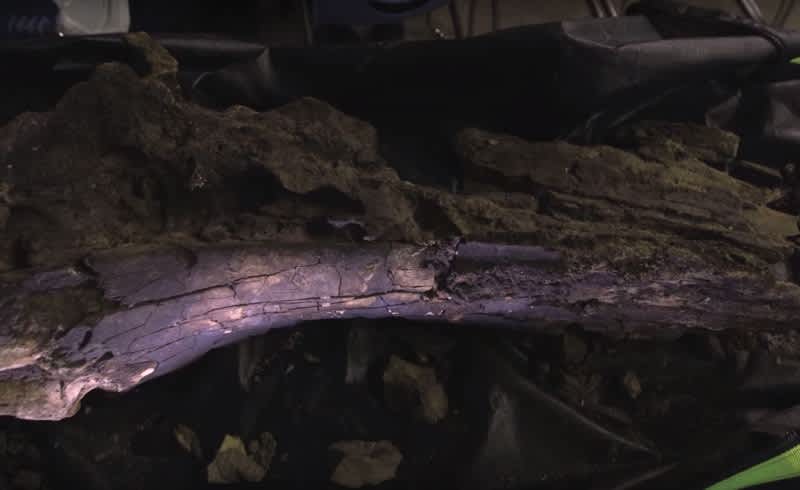Diver Discovers Whale Skull in Virginia Swamp
OutdoorHub Reporters 08.27.15

In the muddy riverbed of a Virginia swamp, one paleontologist discovered something that did not belong there: a massive whale skull. Jason Osborne found the six-foot skull back in 2013, but was unable to retrieve it until recently with the help a team of experienced excavators, and, strangely enough, a floating body bag. Once it was brought onto dry land, experts determined that the bones actually belonged to an extinct species of baleen whales, and it may have died about five million years ago.
“To see and touch things for the first time, that’s a pretty amazing rush,” Osborne told National Geographic.
You can watch a video describing the find below:
How did a massive whale—estimated to measure 25 feet long from nose to tail—find its way into Virginia? Much of the Atlantic Coast was actually submerged millions of years ago and where the Potomac River now lies was once an ancient whale calving ground. The region is full of marine fossils and is a treasure trove for paleontologists like Osborne. Not too far away, a team of researchers from Culvert Marine Museum dug up another whale skull in July. That one was estimated to be an astounding 15 million years old.
“But to have such a large and complete specimen is pretty uncommon,” John Nance, the museum’s paleontology collections manager, told The Washington Post. “In a marine environment, the bones are usually scavenged and scattered all about.”
Scattered much like Osborne’s whale. While the rest of the whale’s body may be lost in the swamp, the skull was in remarkably good condition. Experts from Culvert examined Osborne’s discovery and noted a series of deep cuts in the whale’s skull, possibly from a large prehistoric shark called a megalodon. Since there was no sign of growth over the wounds, it is likely that the whale had fallen prey to one of the largest ocean-going predators in Earth’s history.
Osborne’s find also had a special significance as this species of whale has never been seen on the Atlantic coast. That could mean that it is either a new species entirely, or that the whale had traveled far from its home.

